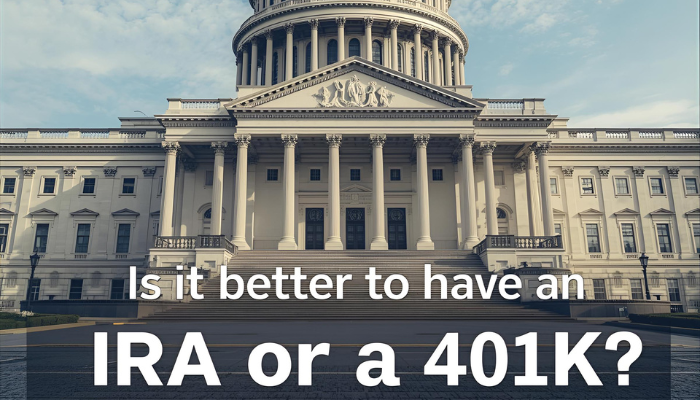
Is It Better to Have an IRA or a 401K?
In the US, IRA and the 401(k) plans are among the most common saving accounts for retirement. Both offer tax benefits. Both hold the potential for long-term gain. However, they also differ in many aspects. So, is it better to have an IRA or a 401k?
To make the wisest decision, learn the differences between an IRA and a 401(k). L&Y Tax Advisors presents a detailed comparison of these two accounts with respect to the IRS regulations.
Are IRA and 401k the Same?
IRA and 401(k) differ from each other in the following aspects:
Source and Availability
A company offers a 401(k) as a way for employees to save for retirement. You can only donate if your employer provides one. In contrast, you set up an IRA on your own. You open it with a bank or brokerage, not your employer.
Contribution Limits
The maximum amount that employees can put off in their 401(k) plans in 2025 is $23,500. If you are 50 or older, you can add additional money to catch up. In contrast, IRAs let those under 50 put in $7,000 and people 50 and over put in $8,000.
Employer Match
Many 401(k) plans let employers match your contributions. It is like getting free money for retirement. IRAs do not give matching since they are personal accounts.
Investment Options and Control
IRAs usually let you choose from a wider range of investments and provide you greater control. If you have a 401(k), you can only choose from the alternatives that your employer’s plan gives you.
Read: What is VAT ID?
Is it Better to Take Money from IRA or a 401k?
If you take money out of either sort of account before taxes are due, you usually have to pay taxes on it. Early withdrawals (before age 59½) usually come with fees, unless there are exceptions.
Sometimes, Roth versions let you withdraw money from your account without paying taxes on it. Required minimum distributions (RMDs) start at age 73 for:
- Traditional IRAs
- Traditional 401(k)s
Selecting whether to take money from an IRA vs. a 401(k) relies on the:
- Tax bracket
- Need for liquidity, and
- Whether the plan allows loans
Sometimes, rolling a 401(k) into an IRA (or vice versa) makes sense when changing jobs.
Get the best QuickBooks & bookkeeping services in Texas, US!
Is it Better to have an IRA or a 401k?
A 401(k) is a better base for many individuals. It has larger contribution limits and employers match contributions. If your company provides a good match, be sure to contribute up to the matching limit first.
An IRA is useful if you want additional investing options, want more freedom with your Roth, or do not have a good 401(k).
A lot of financial experts say to use both. First, max up the 401(k) match, then put money into an IRA, and then maybe add more to the 401(k).
Our experts are at your service for tax return preparation.
Is an IRA Safer than a 401k?
‘Safer’ depends on what you mean by that: costs, protection, or stability.
Creditor Protection
Federal law usually protects 401(k)s better against creditors and bankruptcy than IRAs do.
Fees and Oversight
If managed correctly, 401(k) plans may have reduced institutional costs. However, they may also have administration expenses. Depending on the supplier, IRAs may have reduced costs, but the investor has to pick carefully.
Rules
Both are regulated. But employers have a fiduciary duty to 401(k) members that adds another level of scrutiny that frequently helps plan participants.
The Bottom Line
So, is it better to have an IRA or a 401k?
Having a well-managed 401(k) and an IRA together provides you the greatest tax breaks and saving options. If your employer will match your contributions, it is a compelling incentive to put your 401(k) first.
IRAs are a good choice if you want greater control over your investments or desire Roth features. Everyone’s scenario is different.
We are here to help you pick the best retirement plan with our personalized financial guidance based on your income, tax situation, employment plan, and long-term objectives. Call us now!
Also, read: What is industry accounting?


